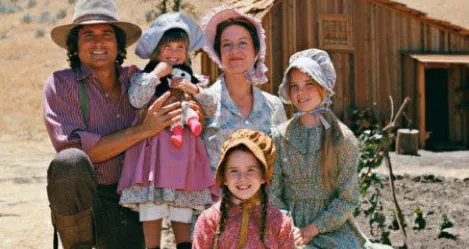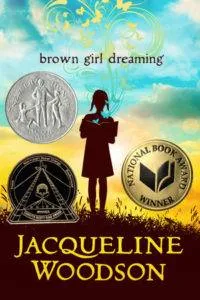
What the Laura Ingalls Wilder Award Name Change Means—And What It Doesn’t
“The Association for Library Service to Children voted to rename the Laura Ingalls Wilder Award the Children’s Literature Legacy Award in its June 23, 2018, meeting” and a lot of people have feelings about the change. Ignoring the fact that most of the people upset and signing petitions had never even heard of the Wilder Medal before and don’t even know what “ALSC” stands for without looking it up, I wanted to address some of the monologues (it’s certainly not dialogue) I’ve seen floating around.
What this award name change means:
- Librarians who created and present an award voted unanimously to change the name of that award because they acknowledge that its former namesake made repeated racist references to Native American and Black people.
- Reason? “This award elevates a legacy that is not consistent with values of diversity and inclusion—something we did not fully understand as a profession when we created the award.” (source)
- ALSC is finally responding to decades’ worth of complaints about the award’s namesake.
- People who have devoted their entire lives to children’s books cried tears of joy when the motion passed, because they wanted an award anyone could be proud to win, without dark clouds of racism floating overhead.
- Some modern recipients of the award don’t have to accept an award bearing the name of an author who wrote books depicting their ancestors as not human.
What this award name change does not mean:
- It is not erasure.
- The award’s name change doesn’t destroy all copies of Wilder’s books.
- It doesn’t ban her books from schools or libraries.
- It doesn’t remove her books from publication or remove your fond memories of them from your brain.
- She is not being “punished” 61 years after her death.
- She is not being “purged from the kidlit landscape.”
- The ALSC didn’t “destroy history” or “vandalize our culture.”
The comparisons to Fahrenheit 451 and 1984 are preposterous. Nothing is being erased or altered. The name of an award that you didn’t even care about two weeks ago was changed. That’s it.
The announcement of the name change explicitly states: “Updating the award’s name should not be construed as censorship, as we are not demanding that anyone stop reading Wilder’s books, talking about them, or making them available to children. We hope adults think critically about Wilder’s books and the discussions that can take place around them.” (source)
Yes, we are judging a person from a different time based on today’s moral and ethical standards—because they are still being read and honored in today’s times. Yes, most authors from this time period and others would fail against today’s standards. Some have disingenuously argued that this is evidence we just want to erase history, rather than learn from it. The truth is that this name change is indicative of a population that has learned from its history, acknowledged its mistakes, and is moving forward with the intent of doing less harm.
I’ve seen arguments that this is misogynistic because “no one’s changing the name of Mark Twain award.” What these people are implying is that we cannot make one small move towards inclusivity in one small corner unless/until every other racist corner of the literature world makes the same move. How ridiculous does that sound, when it’s spelled out like that? And, you know what? If you think changes like this should be made in your corner, go ahead and start advocating for them the way these youth librarians did! You have their blessing.
Let’s address the “she’s a product of her times” argument right alongside the claims of “censorship,” since these are the two most favorite cries. First of all, not every person (whispers: not even every white person) from that time agreed with the racist narratives depicted in Wilder’s books. I’m no expert, but I’m relatively sure the Native Americans Wilder’s family chased from their ancestral lands didn’t consider themselves inhuman. Second, if Wilder was a product of anything, it was her individual experiences. We don’t get to see the product of Black and Native American experiences from that time because they were systematically silenced and erased. Those were the voices that were “censored,” not the voice of one white lady whose books have been reproduced over 60 million times in 45 languages.
Wilder fans are complaining that this name change means her name will forever be equated with racism. Ironically, it’s these same people who are giving the name change all the free publicity. But also, is it really such a bad thing that more people can now put these books in their context and read them with a critical eye? If the racism in these books is a “teachable moment,” then the discussion about this name change can also be a “teachable moment.”
You don’t get to say that you care about Native American children and Black children, but then refuse to let go of something that harms them because you have warm, fuzzy adolescent feelings. We are adults now. Part of being an adult means recognizing that just because you enjoy something, doesn’t mean it’s inherently virtuous.
It is okay to have loved Little House on the Prairie as a child, hold on to fond memories of the characters, and also support the award’s name change. The books are beautiful and fun. They’re also racist. They can be both.
Can you imagine a young Native American child having to (because, remember, it’s still assigned reading in a lot of places) repeatedly read “the only good Indian is a dead Indian?” immediately after his teacher told him this is one of her favorite books? Imagine, if you even can, being a small, impressionable darker-skinned child and reading the words “You’ll be brown as an Indian, and what will the town girls think of us?” and then observe all of your white classmates gush over how much they adored the book.
Well, that’s still going to happen, because this name change does not remove these books from classrooms all over the world.
People mad about the change want us to continue upholding racists books as the (pale) golden standard. We need to listen to what writers and readers of color are telling us, even if it makes us uncomfortable or sad. We need to acknowledge our privilege, our inherent biases, systemic oppression at every level, and stop being so indifferent to these issues.
Your fond childhood memories don’t matter more than emotional harm caused to the most vulnerable members of our community. The funny thing is, most of the people upset with this award name change fully acknowledge that Wilder’s books are racist. They just don’t care.









